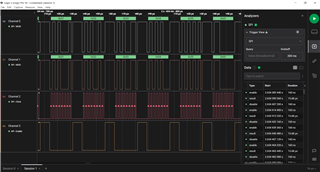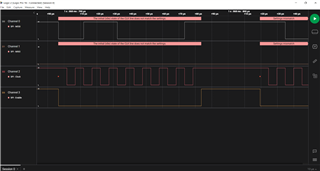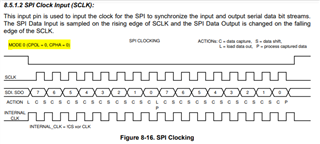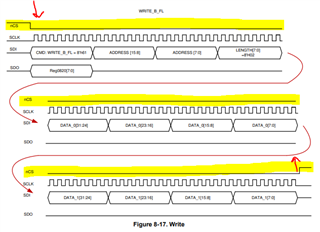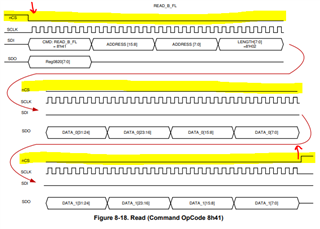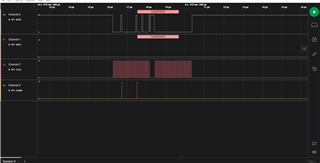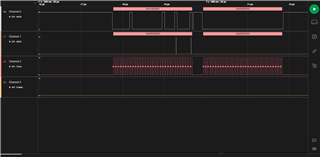Other Parts Discussed in Thread: TCAN4550
Hi TI Team,
We are using TCAN4550 EVM with IMX8MN Nano EVK.
We are loading 3 drivers for TCAN4550 module.
1)insmod can-dev.ko
2)insmod m_can.ko
3)insmod tcan4x5x.ko
It is showing below mentioned error during tcan4x5x driver loading.
[ 35.106793] tcan4x5x spi1.0: no clock found
[ 35.111038] tcan4x5x spi1.0: no CAN clock source defined
[ 35.177749] tcan4x5x spi1.0: Unsupported version number: 0
[ 35.214917] tcan4x5x: probe of spi1.0 failed with error -22
Could you please guide us for unsupported version number issue.
Note – For TCAN EVM we are not providing clock. TCAN EVM has itself 40 MHz crystal clock.
Reference log
1) root@CT-100:~#
root@CT-100:~# insmod can-dev.ko
[ 22.982106] CAN device driver interface
root@CT-100:~#
root@CT-100:~# insmod m_can.ko
root@CT-100:~#
root@CT-100:~#
root@CT-100:~# insmod tcan4x5x.ko
[ 35.106793] tcan4x5x spi1.0: no clock found
[ 35.111038] tcan4x5x spi1.0: no CAN clock source defined
[ 35.177749] tcan4x5x spi1.0: Unsupported version number: 0
[ 35.214917] tcan4x5x: probe of spi1.0 failed with error -22
We are using below mentioned pins for hardware connection between TACN EVM and IMX8 Nano.
1)SDI
2)SDO
3)SCLK
4)RST
5)GPO1 / CLKOUT
6)nCS
7)nINT
8)GPO2
If any additional details are required, please let me know.
Regards
Ramji Mishra


